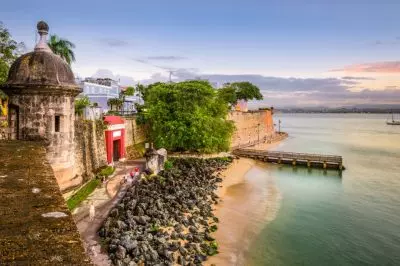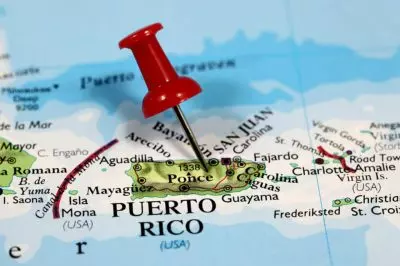 Puerto Rico became the latest U.S. territory to allow betting on sports after outgoing Governor Ricardo Rosselló signed the Betting Committee Act of the Government of Puerto Rico into law on Monday. The bill also legalizes wagering on e-sports and fantasy leagues on the Caribbean Island.
Puerto Rico became the latest U.S. territory to allow betting on sports after outgoing Governor Ricardo Rosselló signed the Betting Committee Act of the Government of Puerto Rico into law on Monday. The bill also legalizes wagering on e-sports and fantasy leagues on the Caribbean Island.
The signing comes after both Puerto Rico’s both branches of the legislature passed House Bill 2038 earlier this month. It received support in its original form by the House of Representatives and later, several amendments were made by the Senate before it was finally approved. The bill does not simply legalize wagering on sporting events, fantasy leagues, and e-sports – it puts a huge focus on the regulation of the sector, including a provision for the establishment of a new regulatory body.
The new agency, the Puerto Rican Betting Commission, will be comprised of seven members, who will be representatives of both the public and the private sector. The Commission will regulate several sectors, namely sports betting, equestrian sports, e-sports, and gambling. As a result, the current Gaming Division at the Tourism Company and the Administration of the Equestrian Sports Industry will be abolished and all their responsibilities will be taken by a single authority.
The new piece of legislation that allows betting on sports and video game competitions is expected to stimulate the local economy and help revive the tourism sector, which took a serious blow after Hurricane Maria in 2017. Rep. Nestor Alonso from the New Progressive Party, who was the betting bill’s primary sponsor, applauded Gov. Rosselló’s decision to sign the bill into law before resigning.
Last week, the governor announced his resignation, effective August 2, and the signing of the sports betting bill is one of his last acts. Rosselló was forced to step down after controversial text messages between him and his associates and colleagues were leaked – in them, he made fun of Maria survivors. Protests followed, which led to the resigning of both Rosselló and Secretary of State Luis Rivera Marín.
Details of the New Betting Legislation
 The measure, which would allow betting on sports in Puerto Rico, was initially proposed by Governor Ricardo Rossello. Almost immediately, representative Nestor Alonso introduced House Bill 2038, which gained support from both the House and the Senate on the island. It became possible only after the federal ban on sports betting was overturned with a U.S. Supreme Court Decision in May 2018.
The measure, which would allow betting on sports in Puerto Rico, was initially proposed by Governor Ricardo Rossello. Almost immediately, representative Nestor Alonso introduced House Bill 2038, which gained support from both the House and the Senate on the island. It became possible only after the federal ban on sports betting was overturned with a U.S. Supreme Court Decision in May 2018.
Although Puerto Rico is not an official state, it is an American Commonwealth, so all federal restrictions on gambling and betting also apply here. Currently, the Caribbean island, which is more than 1,100 miles from the coast of Florida, permits most forms of gambling and has 19 casinos, a horse racing track, as well as a large number of cockfighting pits.
The passing of the Betting Committee Act of the Government of Puerto Rico now legalizes the betting on sports, fantasy leagues, and e-sports. Wagers on amateur sporting events, however, are not allowed. The Act has several quite unique aspects, one of which is the focus on video game competitions or e-sports, as they are also known – the rapidly growing industry will now be allowed in Puerto Rico, as well, and online users will be able to bet on hit titles such as Fortnite, League of Legends, CS: GO, Dota 2, etc.
Another unique provision in the law allows cockfighting arenas to apply for a sports betting license. In fact, the new Betting Commission will grant licenses to a wide variety of venues, including casinos, horse racing tracks, hotels, etc. However, sports betting venues will not be allowed within 100 meters of a school, religious site, or a rehab facility. Of course, betting is prohibited for individuals under 18.
Tax revenue is secured through operating license fees and taxes – the tax will be 7% on sports bets accepted at land-based facilities and 12% on bets taken online. The license fee will be at least $50,000 but smaller venues may be charged as little as $2,500 for a license.